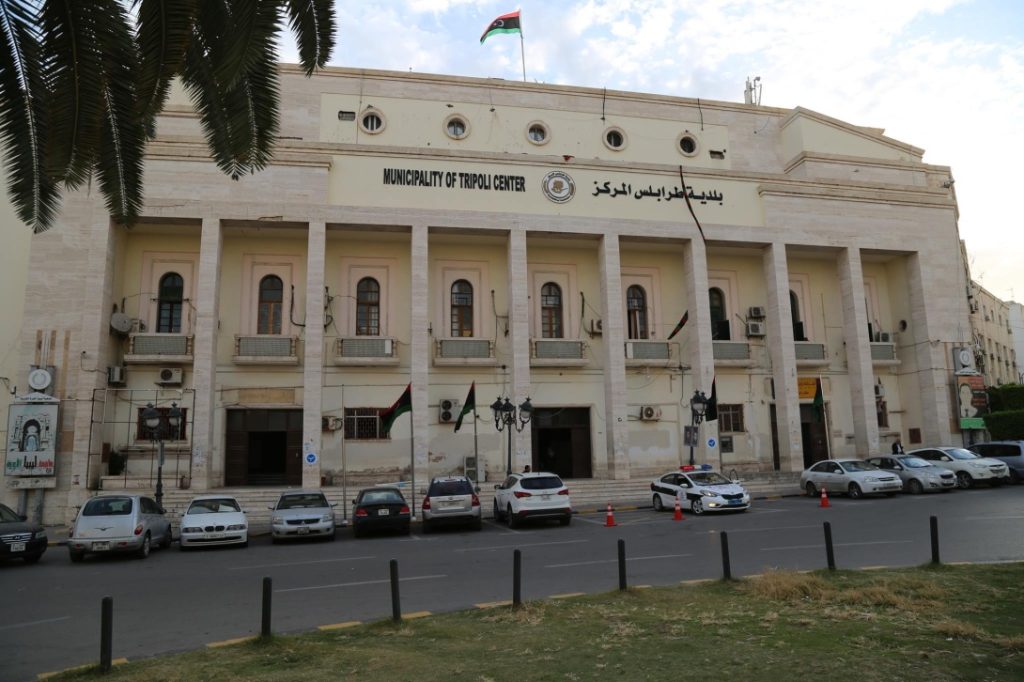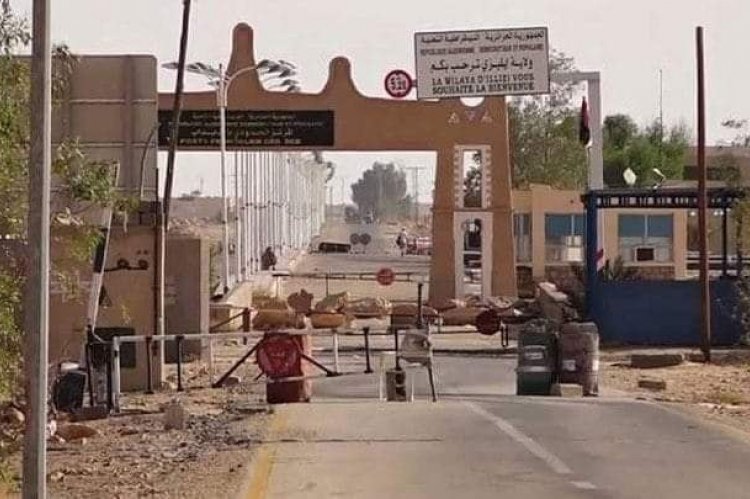Why Libya Workforce Development Matters
Libya stands at a critical juncture where economic growth and security stabilization can reinforce each other. With a young, educated, and largely underutilized population, Libya workforce development has the potential to transform human capital into a driver of industrial diversification while strengthening national and regional security. According to Khaled Kaim, Libyan economist, “Libya has a workforce ready for industrial and tech investment” (LibyaObserver.ly, 2025-07-15).
In a region where youth unemployment fuels informal economies and militia recruitment, leveraging Libya’s labor pool is not merely an economic imperative, it is a strategic necessity for stability and counterterrorism. Libya’s workforce is roughly 60% under the age of 30 (UNDP Libya, 2025-06-18), with literacy rates above 90% in urban areas, though rural regions face disparities. Female participation in the labor market remains low, particularly in technical and security sectors, creating untapped potential for both economic expansion and societal resilience.
According to the UNDP Libya Economic Resilience Report, integrating women and youth into vocational and technical programs can simultaneously promote social cohesion and strengthen domestic security infrastructure.
Unlocking Libya’s Economic and Security Potential
The potential of Libya workforce development extends across sectors critical to both economic and security outcomes. Industrial manufacturing, logistics, IT services, and energy-related infrastructure provide avenues to absorb youth talent while building capacity for national resilience. UNDP reports indicate that regions with higher youth employment correlate with lower rates of local extremist recruitment, demonstrating the tangible security dividends of workforce investment.
Comparative regional examples illustrate the potential impact. Morocco’s Tangier Med port, developed with European investment and coordinated governance, created 20,000 skilled jobs and reduced regional smuggling by 30% (Atlantic Council, 2024-11-12). Similarly, Egypt’s Suez Canal Economic Zone leveraged vocational training to increase employment and reduce local recruitment into informal or extremist networks (World Bank, 2024-09-15). Tunisia’s industrial zones, paired with youth skills programs, have stabilized regional labor markets while enhancing industrial security protocols. Libya, by mirroring these models, could integrate economic diversification with measurable improvements in national and regional security.
Reinvesting Oil Revenues to Strengthen Libya Workforce Development
Libya’s oil wealth remains the backbone of its economic potential, but targeted reinvestment is essential to translate revenue into workforce development and security outcomes. Investment in industrial zones, technology parks, and vocational programs allows Libya to expand its skilled labor pool, preparing personnel for roles in logistics, energy security, and maritime operations.
Fatih Birol of the International Energy Agency notes, “Reinvesting oil wealth is key to diversifying Libya’s economy” (IEA, 2025-08-10). Programs funded by oil revenues are increasingly linked to security initiatives. For example, industrial zones near coastal cities incorporate vocational modules on energy facility protection, port surveillance, and industrial safety, equipping workers with skills critical to safeguarding national infrastructure.
Dual-Governance Coordination, Tripoli and Benghazi
Libya’s dual-governance system, GNU in Tripoli and GNS in Benghazi, creates both challenges and opportunities for workforce-driven security enhancement. Coordinated administration of training programs, industrial projects, and port operations ensures consistent oversight and allows for unified responses to potential threats.
The European External Action Service highlights, “Coordinated training programs with EU partners strengthen Libya’s ability to counter trafficking and extremist networks while creating local employment.” By aligning workforce initiatives across both administrations, Libya demonstrates that dual governance can function effectively when mutual interests, such as economic growth and security, intersect.
Digital and IT Opportunities in Libya Workforce Development
Beyond traditional industrial sectors, Libya’s IT and cybersecurity industries offer dual benefits for economic diversification and national security. As Libya expands digital infrastructure, demand for skilled cybersecurity professionals grows to protect energy grids, financial networks, and government data systems. Atlantic Council analysts emphasize, “Libya could become a hub for Mediterranean manufacturing and tech” (AtlanticCouncil.org, 2025-06-18).
The growth of digital infrastructure demonstrates that Libya workforce development is not limited to traditional industries. Cybersecurity training programs also support industrial and port security. Personnel equipped to detect and respond to cyber threats ensure continuity of operations for energy facilities, logistics hubs, and critical infrastructure, linking workforce training directly to national resilience.
European and MENA Investment Linking Workforce to Security
Foreign investment plays a central role in connecting workforce development to measurable security outcomes. French and European companies, such as TotalEnergies, have expressed interest in Libyan energy, port, and industrial projects, emphasizing the need for a skilled, reliable local workforce (TotalEnergies.com, 2025-07-10). Investment in ports, industrial zones, and renewable energy infrastructure creates employment while simultaneously supporting security objectives. Trained personnel can secure facilities, manage logistics chains, and operate surveillance systems, mitigating risks associated with regional instability.
Measurable Security Outcomes
Workforce investment has already produced tangible security outcomes. Joint coastal patrols and anti-smuggling operations along Libya’s Mediterranean coastline have curtailed illicit trafficking networks. The International Organization for Migration reports, “Libya’s engagement in curbing illegal migration is recognized by European policymakers as increasingly effective” (IOM, 2025-06-30).
Personnel trained in logistics, maritime surveillance, and energy facility management are now integral to these operations. Skilled workers not only support operational capacity but also reduce recruitment into extremist groups by providing legitimate employment alternatives. This dual approach demonstrates how workforce programs can simultaneously drive economic and security gains.
Energy and Industrial Security Integration
Libya’s workforce also intersects with energy and industrial security. Skilled labor deployed at oil terminals, power plants, and industrial facilities mitigates risks of sabotage, theft, or unauthorized militia influence. Vocational programs include training modules on industrial safety, energy security, and infrastructure monitoring, ensuring that economic development initiatives directly contribute to safeguarding national assets.
The International Energy Agency notes, “Investing in trained personnel at key energy hubs ensures continuity of supply and reduces the risk of sabotage” (IEA, 2025-08-10). By linking human capital development to operational security, Libya aligns workforce investment with national and European strategic priorities.
Infrastructure and Industrial Development
Infrastructure projects form the backbone of Libya’s economic-security strategy. Port modernization, logistics hubs, and industrial zones not only generate employment but also strengthen operational capacity in energy and maritime sectors. The Benghazi Industrial Zone, for instance, aims to employ over 5,000 youth by 2026, integrating vocational training with facility management and security operations (LibyaObserver.ly, 2025-07-15).
Similar projects in Misrata and Tripoli combine industrial training with port management skills, creating a workforce capable of supporting both economic and security functions. Strategic deployment of labor to these facilities ensures operational continuity while reinforcing domestic legitimacy.
Community and Youth Impact
Workforce programs produce tangible local benefits. Employment reduces reliance on informal labor networks, smuggling, and recruitment into militias. Gender inclusion initiatives further enhance societal resilience. UN Women reports, “Integrating women into coastal monitoring units has increased operational effectiveness while promoting societal resilience” (UN Women, 2025-05-20).
Youth participation in vocational programs fosters civic engagement and strengthens trust in national institutions. By channeling human capital into productive sectors, Libya reduces vulnerability to social unrest and strengthens community cohesion.
Libya Workforce Development and Regional Cooperation
Libya’s workforce development efforts intersect with regional security initiatives. Trained personnel participate in NATO Mediterranean Dialogue programs, EU-funded maritime security projects, and bilateral counter-smuggling exercises. The French Ministry of Armed Forces notes, “Libya is increasingly a security partner in the Mediterranean” (France, 2025-08-15).
Through NATO and EU-backed initiatives, Libya workforce development contributes directly to regional security. These programs provide technical training, operational experience, and multilateral oversight, ensuring that Libya’s workforce strengthens both domestic stability and regional cooperation.
Challenges and Mitigation
Despite progress, challenges persist. Bureaucratic inefficiencies, militia influence, political fragmentation, and resource allocation issues can impede program effectiveness. Mitigation requires multilateral oversight, transparent funding mechanisms, and dual-administration coordination. Joint monitoring committees, staffed by civil authorities and security liaisons, have been implemented in key industrial zones to ensure compliance, operational effectiveness, and equitable distribution of employment opportunities.
Policy Recommendations
- Expand Vocational Programs: Focus on logistics, IT, energy security, and industrial management.
- Integrate Security Training: Ensure industrial zones, tech parks, and port facilities include operational security modules.
- European and MENA Engagement: Maintain investment, technical assistance, and operational oversight to maximize economic and security returns.
- Dual-Governance Coordination: Align workforce and security initiatives across Tripoli and Benghazi to ensure uniform implementation.
- Gender Inclusion and Youth Empowerment: Expand participation of women and youth in vocational and security programs.
Libya Workforce Development as a Strategic Asset
Libya workforce development is both an economic and security imperative. By embedding security objectives within vocational and industrial training, the country addresses youth unemployment, strengthens national resilience, and enhances regional credibility. Strategic reinvestment of oil revenues, targeted education programs, and international cooperation transform Libya’s labor pool into a force multiplier for national stability. If pursued decisively, Libya could emerge as a model Mediterranean economy where workforce investment underpins long-term prosperity and security.



